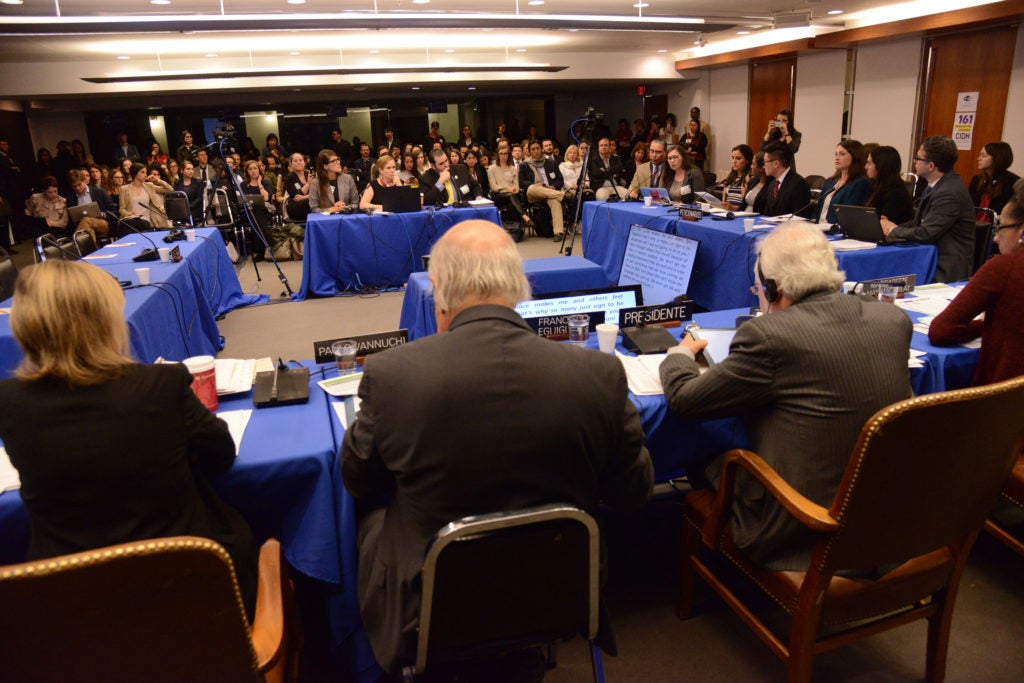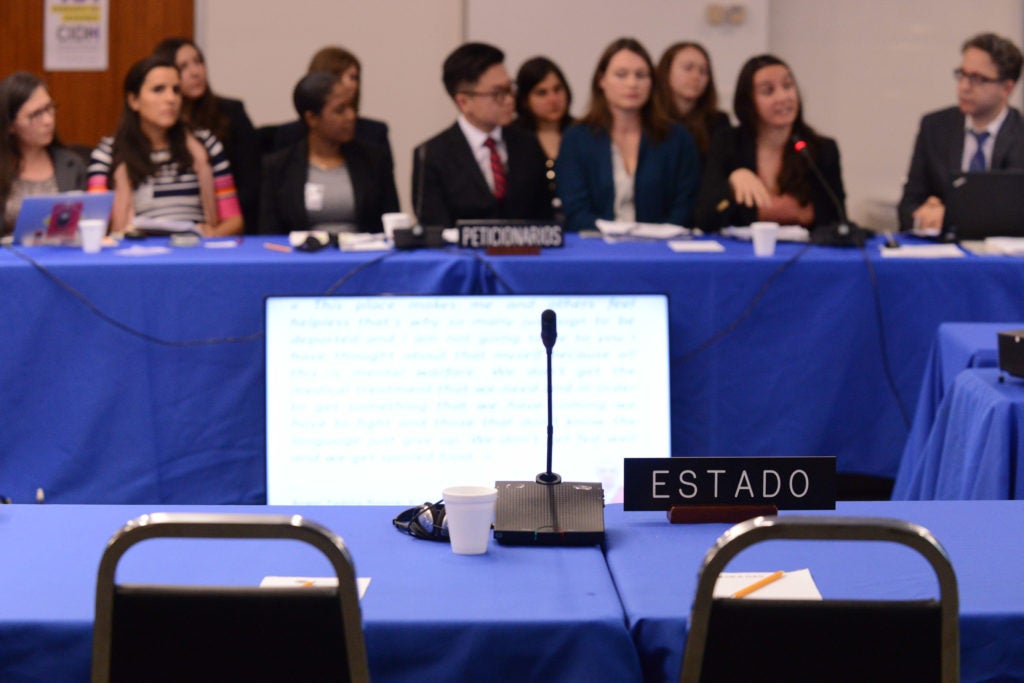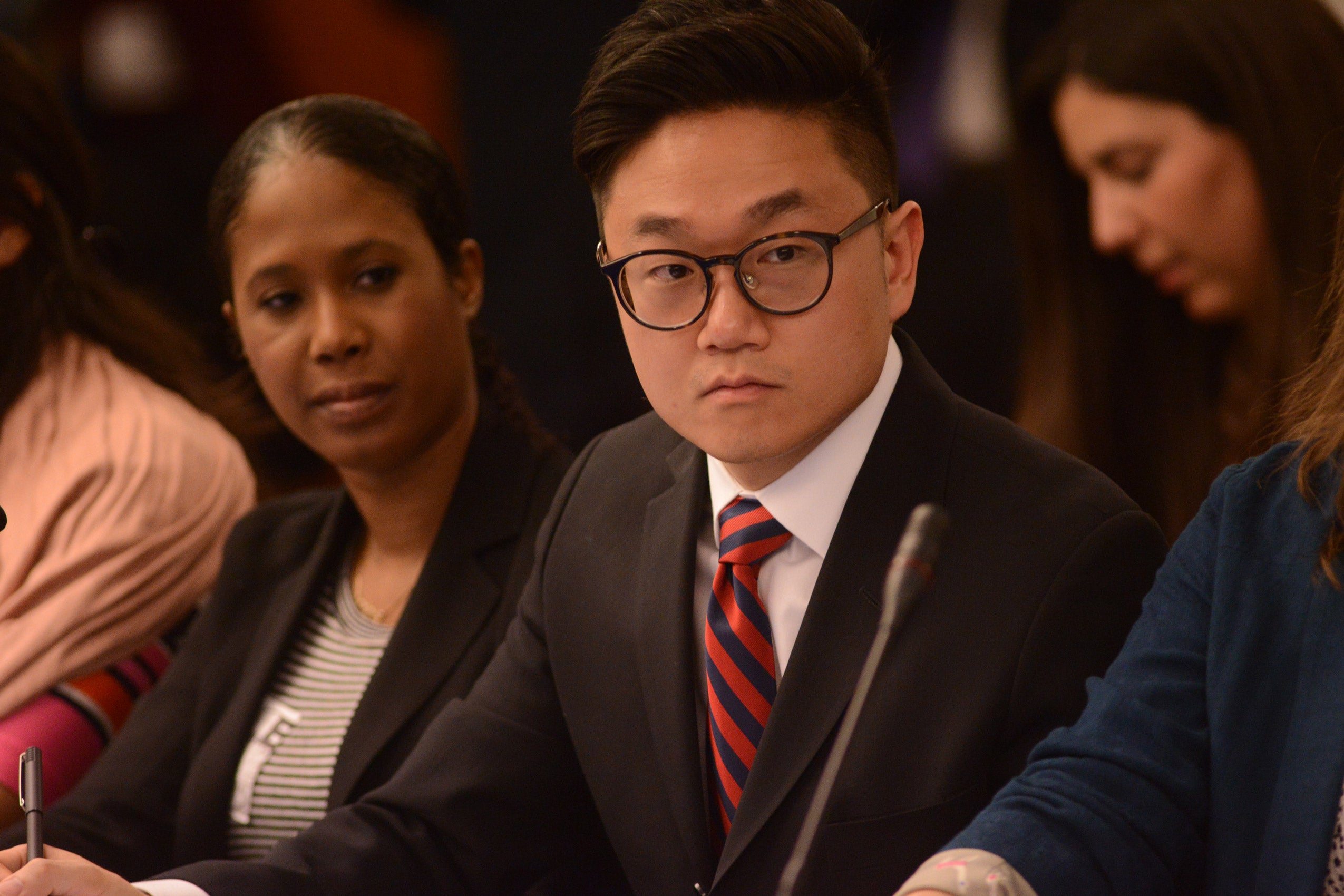The following post by Jin Kim ’18 was featured on the Harvard Immigration and Refugee Clinic (HIRC) blog on March 22. On Tuesday, he participated alongside fellow HIRC member Malene Alleyne LL.M. ’17 in an emergency hearing at the Inter-American Commission on Human Rights (IACHR) headquarters in Washington, D.C., on the effects of the Trump administration’s executive orders on immigration. Last week, the IACHR granted HIRC’s request to attend with Canadian advocates to give testimony on the Canada–U.S. Safe Third Country Agreement (STCA), which allows Canada to turn away asylum seekers entering from the United States. (Read the press release.) Under the Agreement, refugee claimants are required to request refugee protection in the first safe country they arrive in, unless they qualify for an exception to the Agreement.
On February 8, Deborah Anker, clinical professor and director of the Harvard Immigration and Refugee Clinic (HIRC) sent a letter to Canada’s prime minister and minister of immigration urging them to halt enforcement of Canada’s Safe Third Country Agreement with the U.S. HIRC produced a report on the effects of President Trump’s executive orders on people seeking asylum protection in the United States under longstanding provisions of U.S. and international law, including refugee law and the Convention Against Torture. The report warned that the orders will dramatically restrict access to asylum and other immigration protections in the U.S., and will usher in a new regime of large-scale detention, expansion of expedited removal without due process, and deputizing of state and local officials to detain certain individuals on “mere suspicion” of immigration violations.
Since January, HIRC has mobilized to strengthen protections for the refugees and asylum seekers with whom they work. More than 400 students at the Law School have joined this collective post-election effort, called the Immigration Response Initiative.
When the Inter-American Commission on Human Rights began its emergency hearing yesterday, the room was packed. There were private citizens, state officials, journalists, and representatives from the civil society organizations, all there to discuss the effects of President Trump’s executive orders.
But one party was noticeably absent: the United States.
Although the IACHR invited the United States to participate in the hearing and answer questions on the effects of the executive orders, it declined to send any representative.
As members of the Harvard Immigration and Refugee Clinical Program, Malene Alleyne, LL.M. ’17, and I were there to testify specifically about the Safe Third Country Agreement (STCA), which allows Canada to turn away asylum seekers entering from the United States on the false premise that the United States is a “safe country of asylum.” We presented our testimony alongside five other civil society organizations, including the American Civil Liberties Union.

Private citizens, state officials, journalists, and representatives from the civil society organizations gathered to discuss the effects of President Trump’s executive orders on March 21, 2017, at an emergency hearing of the IACHR.

Jin Kim, Malene Alleyne and fellow petitioners sit opposite a table reserved for representatives from the United States at the March 21 emergency hearing at IACHR headquarters in Washington, D.C. The Commission extended an invitation to the United States to participate in the hearing, and answer questions on the effects of the executive orders, but it declined to send any representatives.
Despite the glaring absence of the U.S. government officials, we civil society organizations had productive conversations with the Commission. Malene and I testified that the executive orders greatly curtail asylum seekers’ ability to meaningfully pursue their claims for protection and increase the risk of deportation to countries where they face persecution or torture.
When asked for specific examples, we spoke about the climate of fear pervading the lives of our asylum clients. In some cases, our clients have even been afraid to leave their houses or report crimes to the police for fear that they will be taken into custody and deported.
The Commission was visibly moved by our collective testimony, and asked us to continue to provide information regarding the impact of the executive orders. In the meantime, until our clients feel safe, it’s our responsibility to come together as a community to stand up for those who have been targeted.
Visit the Harvard Immigration and Refugee Clinic blog for more information on their work in support of those affected by the executive orders on immigration, and on their post-election Immigration Response Initiative activities.
